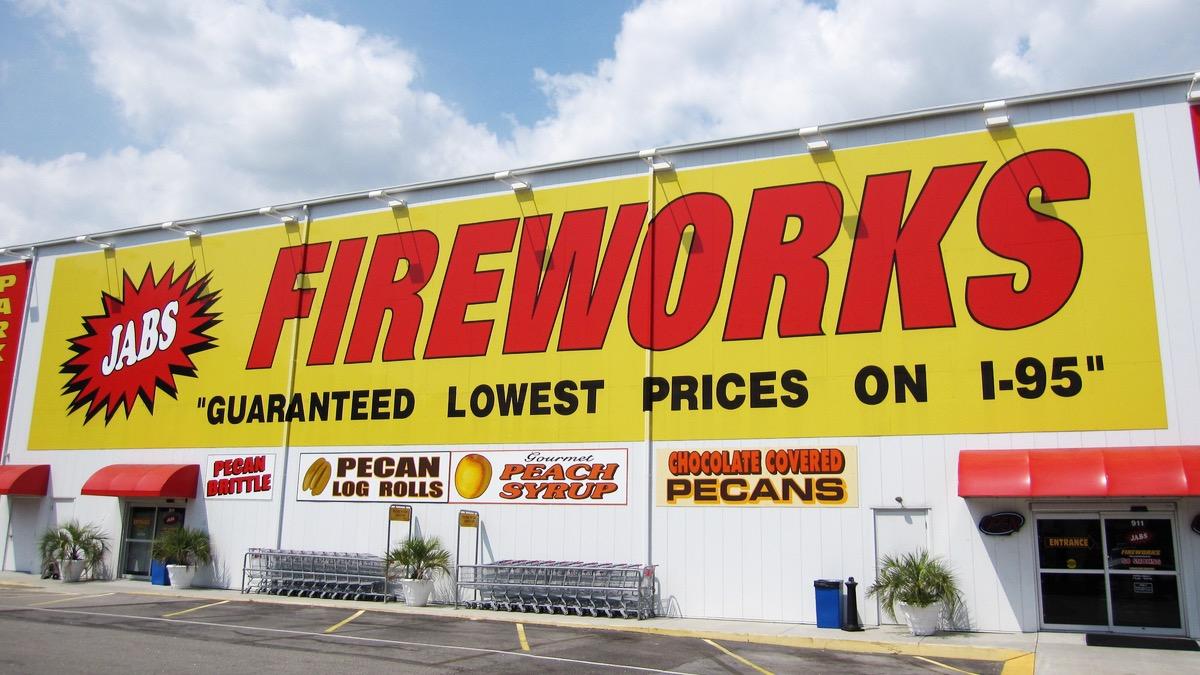Senate kills bill legalizing fireworks sales in Virginia
It was just a pipe dream for some (possibly reckless) fireworks fans.

Update #1 — February 19, 2016; 0:58 AM
Sorry, fireworks fans. It didn’t pass.
Congrats, safety fans!
— ∮∮∮ —
Original — January 22, 2016
By Matt Chaney | Capital News Service
Despite concerns about fire safety, a Senate committee has recommended approval of a bill to legalize the sale of fireworks in Virginia.
The Senate Committee on General Laws and Technology voted 8-5 in favor of the legislation proposed by one of its members, Sen. Thomas Garrett, R-Hadensville. He said the bill could generate millions of dollars in sales taxes on a product he says is used illegally throughout the state anyway.
“Indiana opened the sale of consumer-grade fireworks, and in one year they created an $80 million impact on state revenue. They created about 2,000 full-time jobs, and they created about 8,000 seasonal jobs,” Garrett said during the committee’s meeting on Monday.
“Virginia is a bigger economy” than Indiana and could benefit even more, he said.
Garrett said his proposal–Senate Bill 208–would also allow local governments in Virginia to decide for themselves if they want to allow the use and sale of “consumer fireworks,” defined as “small fireworks devices containing restricted amounts of pyrotechnic composition designed primarily to produce visible or audible effects by combustion.” This category includes bottle rockets, Roman candles, air bombs, and firecrackers, according to online retailers.
“The reality that no one can deny is we have these consumer-grade fireworks in Virginia already,” Garrett said. “People are already using these in Virginia. Why not bring the jobs and revenue to Virginia as localities decide?” Garrett said.
This is the third consecutive year the bill has come up in the Senate. The opposition centers on concern for public safety.
“During the past 10 years, 692 fires and 515 fireless explosions have been attributed to fireworks in the state of Virginia, as well as more than $1.5 million in total fire loss,” Melvin D. Carter, executive director of the Virginia Department of Fire Programs, told the committee.
He said the U.S. Consumer Products Safety Commission found that in 2014, 11 deaths and more than 10,000 injuries occurred as a results of fireworks-related accidents nationwide.
“Nearly half of all injuries were to people younger than 20 years of age,” Carter said.
More than a dozen other representatives of the Virginia Department of Fire Programs attended the meeting. State Fire Marshall Charles Altizer testified against the bill.
“What we’re proposing to allow will make [fireworks] much more readily available and make us more susceptible to misuse than you currently see…When you look nationwide, it’s still a critical issue,” Altizer said.
“The Consumer Products Safety Commission has said that fireworks are the most dangerous consumer product on the market.”
SB 208 would legalize the sale and possession of consumer fireworks in Virginia unless the local government decides otherwise. The bill would “prohibit any person younger than 18 years of age from purchasing fireworks and shall prohibit person younger than 18 years of age from possessing or using fireworks without adult supervision.”
Ultimately, eight members of the Senate Committee on General Laws and Technology voted in favor of the bill. Besides Garrett, they were Republican Sens. Frank Ruff of Clarksville, Jill Holtzman Vogel of Winchester, Richard Stuart of Montross, Richard Black of Leesburg, Bryce Reeves of Fredericksburg, and David Suetterlein of Roanoke, as well as Democratic Sen. George Barker of Alexandria.
Five committee members voted against the bill. They were Democratic Sens. Mamie Locke of Hampton, Adam Ebbin of Alexandria, Jennifer Wexton of Leesburg, and Jeremy McPike of Woodbridge, as well as Republican Sen. William DeSteph of Virginia Beach.
Two committee members–Democratic Sens. J. Chapman Petersen of Fairfax and Scott Surovell of Mount Vernon–abstained.
SB 208 is now before the full Senate. If it passes, the bill will move on to the House of Delegates, where similar proposals have stalled the past two years.
-
Recommend this
on Facebook -

Report an error
-

Subscribe to our
Weekly Digest




There are no reader comments. Add yours.